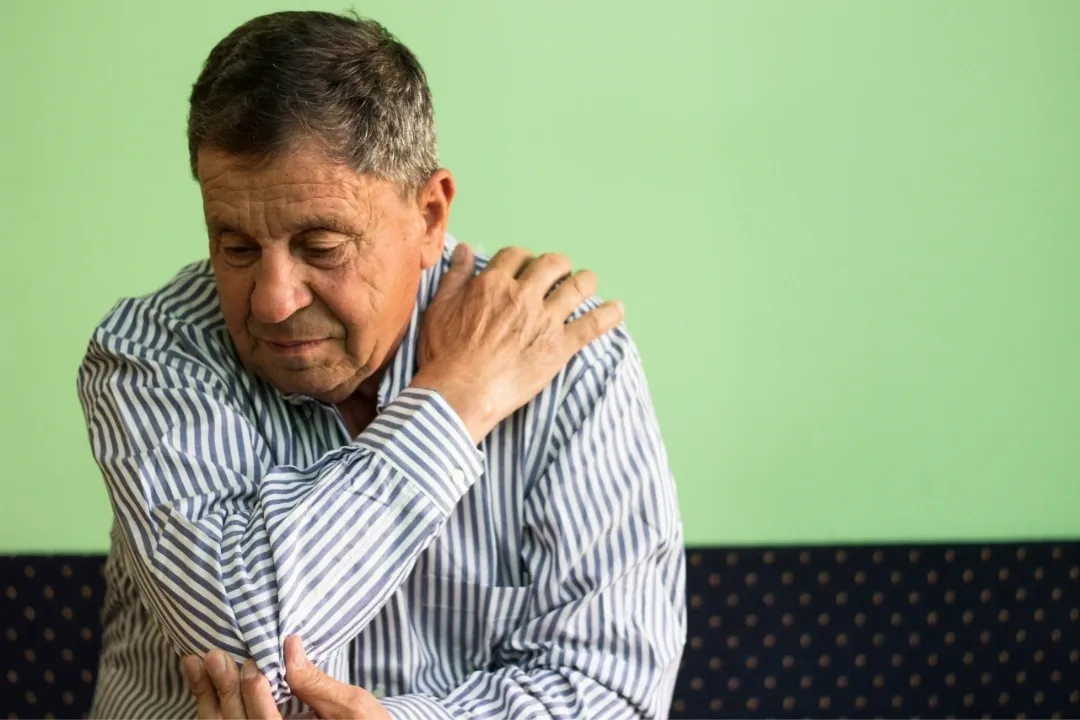Arthritis or any type of joint pain can affect your day-to-day activities in a variety of ways. Whether you suffer from sharp pain or a general discomfort, arthritis that ages with you can be a rude awakening for many. Joint pain may be the first sign that you are no longer the young adult you used to be, but arthritis does not have to mean the end of activities and hobbies you love, or the acceptance of pain in your daily life.

The two main types of arthritis in older adults are osteoarthritis and rheumatoid arthritis. Osteoarthritis is typically the most common kind. It is found in seniors as the daily wear-and-tear of activities over the years affects the joints. According to Mayo Clinic, “[Osteoarthritis] occurs when the protective cartilage that cushions the ends of your bones wears down over time.” This common disease has the ability to affect any joint, yet this disease has been found to mostly affect joints in your hands, knees, hips and spine.
Rheumatoid Arthritis differs slightly from Osteoarthritis. Rheumatoid arthritis is an autoimmune disease in which the body’s own immune system attacks the tissue that cushions the joints. In severe cases, this disease can even attack organs and cause bone erosion and joint deformities. While rheumatoid arthritis can affect you at any age, it can be doubly painful and more difficult to manage as you get older. While the cause of Rheumatoid Arthritis is largely unknown, certain genetic factors and being female, as the disease affects more women than men, can increase your risk of developing the disease.
When it comes to treating arthritis, the goal is often to eliminate pain so that the individual affected can perform their daily tasks without discomfort or pain. It is also helpful to look towards preventing further damage to your body, as preventing new joint pain can help alleviate discomfort in the long run.
Many doctors will prescribe an ice treatment. By placing an ice pack on the affected area, swelling and inflammation are reduced around the joint and can help alleviate pain. If you feel discomfort when you walk, many seniors opt to use a walker or cane to help relieve pressure on their joints as they move about their day. You can also try forms of physical therapy or occupational therapy if you find home remedies are not working for you.
As always, speaking with a medical professional is always the safest way to go about treating any sort of illness or pain you have. Your doctor can prescribe medications based on the type of arthritis you suffer from, such as corticosteroids or disease-modifying anti-rheumatic drugs to suppress the immune system if you suffer from Rheumatoid Arthritis. Anti-inflammatory medication can be helpful if you suffer from osteoarthritis, and speaking to your doctor will help pinpoint exactly which prescription is right for you.
If your arthritis is severe and greatly impedes your quality of life, surgery may be an option to explore with your doctor. Hip and knee replacements are common surgeries done to help with pain in those two areas. If you have pain in your fingers or wrists, doctors can also perform a joint fusion in order to help fuse bones together until they become one bone.
By making certain lifestyle changes, you can help alleviate some symptoms you may be already experiencing while also preventing any further damage on your joints.
Some changes you can implement into your lifestyle include:
While arthritis does not currently have a cure, that does not mean that you can not take action in order to take your life back. By implementing lifestyle changes and seeking help from a medical professional, you have the ability to fight back at joint pain and take back your daily life.